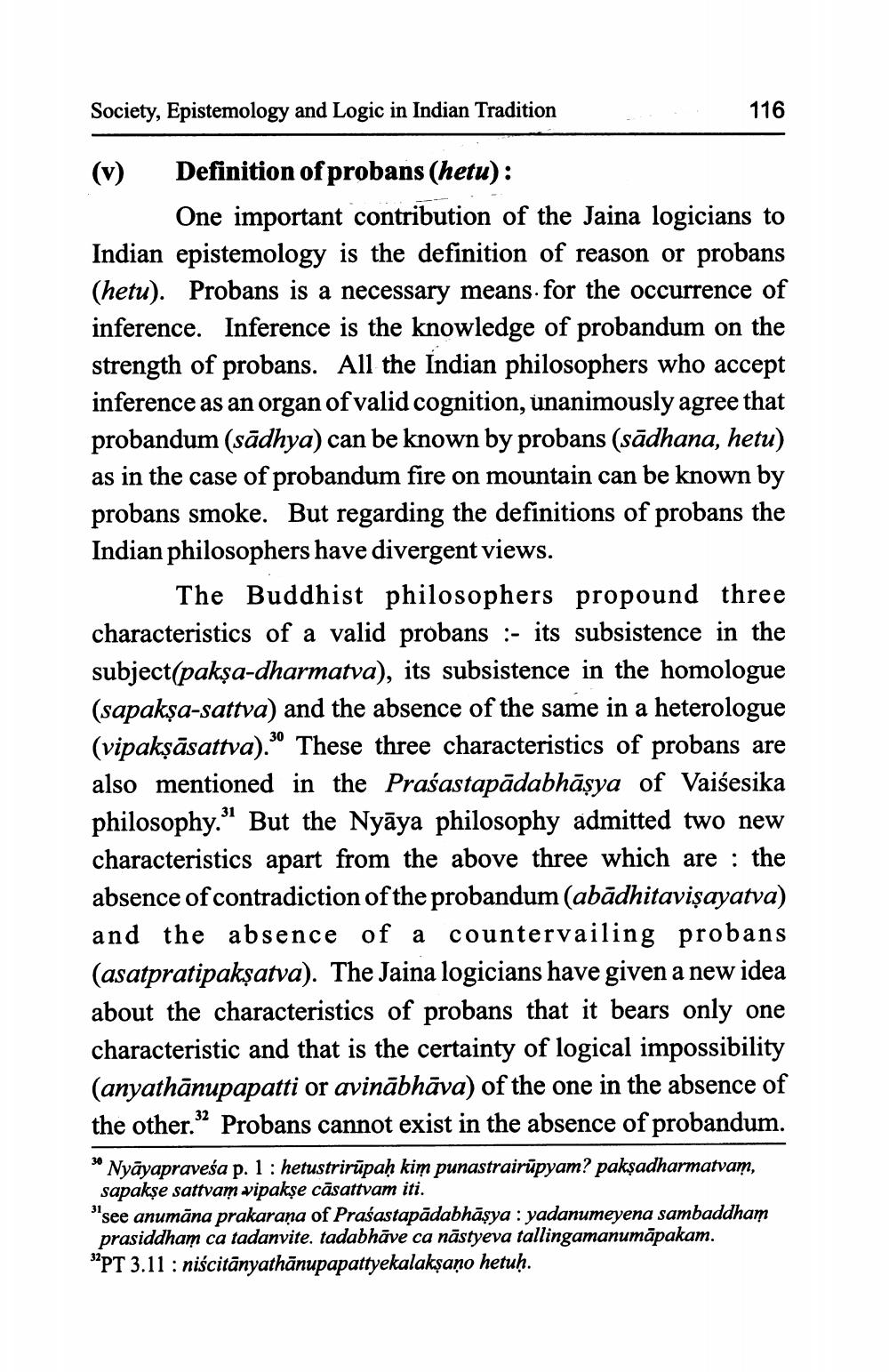________________
Society, Epistemology and Logic in Indian Tradition
116
(v) Definition of probans (hetu):
One important contribution of the Jaina logicians to Indian epistemology is the definition of reason or probans (hetu). Probans is a necessary means. for the occurrence of inference. Inference is the knowledge of probandum on the strength of probans. All the Indian philosophers who accept inference as an organ of valid cognition, unanimously agree that probandum (sādhya) can be known by probans (sādhana, hetu) as in the case of probandum fire on mountain can be known by probans smoke. But regarding the definitions of probans the Indian philosophers have divergent views.
The Buddhist philosophers propound three characteristics of a valid probans :- its subsistence in the subject(pakşa-dharmatva), its subsistence in the homologue (sapakşa-sattva) and the absence of the same in a heterologue (vipakşāsattva)."" These three characteristics of probans are also mentioned in the Prasastapādabhāsya of Vaiśesika philosophy." But the Nyāya philosophy admitted two new characteristics apart from the above three which are : the absence of contradiction of the probandum (abādhitavişayatva) and the absence of a countervailing probans (asatpratipakşatva). The Jaina logicians have given a new idea about the characteristics of probans that it bears only one characteristic and that is the certainty of logical impossibility (anyathānupapatti or avinābhāva) of the one in the absence of the other.”? Probans cannot exist in the absence of probandum. ** Nyāyapraveśa p. 1: hetustrirūpaḥ kim punastrairūpyam? pakṣadharmatvam,
sapakşe sattvam vipakşe căsattvam iti. "see anumāna prakarana of Prasastapādabhāşya : yadanumeyena sambaddham
prasiddham ca tadanvite. tadabhāve ca nāstyeva tallingamanumāpakam. »PT 3.11 : niścitānyathānupapattyekalakşaņo hetuḥ.




